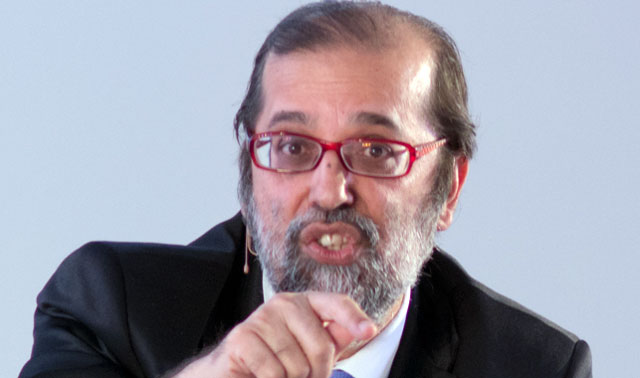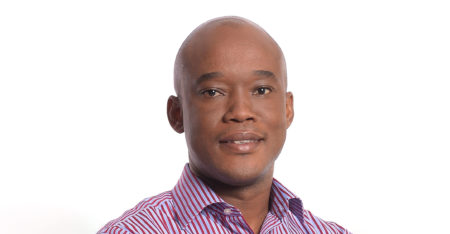 There has been a lot of debate in recent weeks about whether communications minister Yunus Carrim has done the right thing when it comes to South Africa’s new broadcasting policy.
There has been a lot of debate in recent weeks about whether communications minister Yunus Carrim has done the right thing when it comes to South Africa’s new broadcasting policy.
To back up a bit, perhaps we should explain what this debate means for ordinary South Africans.
At present, televisions in South Africa receive analogue broadcast signals. But as part of the “digital migration”, which is taking place across the world, South Africans will need a set-top box or decoder to convert the digital signal to an analogue format, so that existing TVs work.
There are many benefits to this digital migration. For example, it will free up radio frequency spectrum for mobile broadband and will reduce the cost to communicate, create jobs and allow for more TV channels to be streamed at a better quality into people’s homes in indigenous languages.
In the past few months, there has been a battle raging in public between opposing broadcasters about whether the new set-top boxes should be manufactured with a control system.
Some groups don’t want a control system as they say it’s too expensive. Others believe we do need one as it will provide quality controls and stop dodgy imports from flooding into the market.
In 2008, cabinet decided that the new set-top boxes should have control, partly because this will allow for e-government services and other functions, and because it will stimulate the local electronics industry.
But because the factions are so fiercely divided on the issue, cabinet decided in December that the broadcasters should be free to decide whether they want to use a control system or not.
All of the new set-top boxes would have a generic control system installed, rather than a specific form of control, namely encryption. Those who want to use the system will pay for it.
This seemed to be a sound compromise: the system is in the boxes if broadcasters choose to use it, but there is no obligation on them.
So, it is absolutely not true, as Keith Thabo and Vijay Panday of the National Association of Manufacturers in Electronic Components (Namec) argued in a column on this website on 6 April, that broadcasters, including smaller community ones, will be “forced” to use the control system.
Their claim that their channels “could become unaffordable or inaccessible” is absurd. Why would the department of communications do anything stupid like that, against our mandate?
The bottom line is that viewers will have full and free access to all free-to-air broadcasting, even if any broadcaster decides to use the control system.
The advantage of these “hybrid” set-top boxes is that they will receive the signals of both the broadcasters who use the control system and those who don’t. There is nothing complicated, expensive or exceptional about these boxes, as the Namec leaders suggest.
At a recent meeting of communications ministers from Southern Africa, officials from Tanzania, Malawi and Namibia said they were already using such a hybrid box. Mauritius, however, did not go for any form of control and was flooded with cheap imported converters that did not function adequately.
Government did consider dropping the control system altogether, but the problem was that the South African Bureau of Standards said it would take 34 weeks to change the necessary standard — and only then if there is consensus among stakeholders. If there was a dispute, it would take about 15 months, we were told. This route would also have opened us up to possible legal challenge by broadcasters who want the control system.
The fact is, we are already so far behind schedule in our digital migration that this idea was untenable.
Contrary to Namec’s criticisms, the department of communications is committed to ensuring that emerging black manufacturers benefit from the production of these new set-top boxes. But we cannot support the narrow interests of one section of emerging black entrepreneurs.
Minister Carrim has explained to Namec’s leaders that it would be illegal to favour them by abandoning controls. Anyway, the majority of black emerging entrepreneurs we’ve spoken to – which, ironically, includes several Namec members — support the very set-top box control system these leaders are now arguing against.
It is also not true that the certification process for companies that want to use the new, integrated control chipsets that will be placed in the boxes is expensive and lengthy.
The Namec leaders argue that because there are import duties, South Africa is unlikely to be flooded with inferior, imported set-top boxes if we abandon the control system. But the 15% duty is relatively small and is hardly adequate to protect us from a flood of cheap imports. There is also a strange suggestion that Carrim is somehow pushing through a new policy. Truth is, set-top box control has been government policy since 2008. In June 2012, all the stakeholders, including MultiChoice, agreed with the new standard for this control system.

Also, the cabinet decision last year on this issue was only reached after endless discussions with everyone involved.
But since those amendments don’t meet the narrow business needs of the Namec leaders, they now insist that the whole process is simply ignored. Together with MultiChoice, they now criticise the minister personally, as if he alone subjectively decided on cabinet’s decision.
If the policy is so wrong, why would communications regulator Icasa support it, along with major black business organisations and other black businesses? Why does Namec seem far from united under its leadership’s positions?
Sections of Namec are known to be very close to MultiChoice, with views that are apparently indistinguishable — despite very different mandates. If these Namec leaders are serious about black empowerment, why are they not focusing on MultiChoice’s 98% monopoly of pay TV? Why are they, instead, opposing the ANC’s Mangaung resolutions on competition in the sector?
Could it be because some of the organisation’s leaders have a direct business interest in manufacturing set-top boxes without a control system, and now expect government to mould its policy to suit them? We cannot do that. We have to act in the best interests of the country as a whole, particularly the poor and disadvantaged.
This includes broad-based black economic empowerment, not the narrow interests of certain black business leaders.
- Siya Qoza is spokesman for the department and ministry of communications




